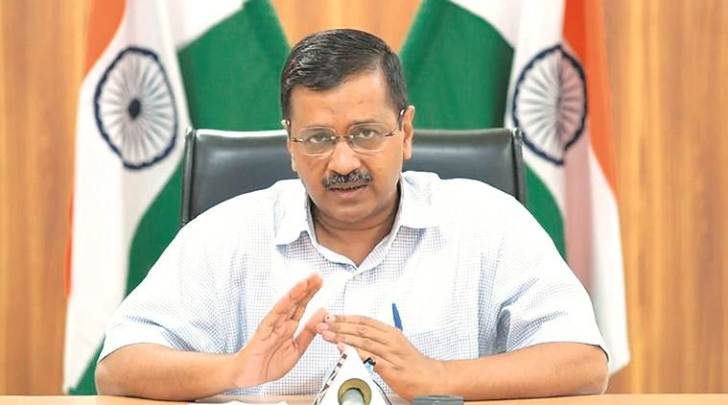Covid ‘third wave’: CM Kejriwal, L-G discuss medical O2 requirement, paediatric task force
The Delhi government had earlier announced that it was ramping up infrastructure in accordance with measures suggested in a report prepared by IIT-Delhi.
 The arrangements were discussed at a meeting attended by Kejriwal and Lt-Governor Anil Baijal, the CMO said in a statement. (File)
The arrangements were discussed at a meeting attended by Kejriwal and Lt-Governor Anil Baijal, the CMO said in a statement. (File)The Delhi government plans to double the capacity of oxygen generated at Pressure Swing Adsorption (PSA) plants, which are usually located within hospital complexes, by the end of September as part of arrangements being made to tackle a possible third wave of Covid-19, Chief Minister Arvind Kejriwal’s office said Friday.
The arrangements were discussed at a meeting attended by Kejriwal and Lt-Governor Anil Baijal, the CMO said in a statement. Apart from issues related to medical oxygen, they spoke about steps being taken keeping the safety and well-being of children in mind, including the creation of a paediatric task force for effective treatment.
The Delhi government had earlier announced that it was ramping up infrastructure in accordance with measures suggested in a report prepared by IIT-Delhi. It is focussing on implementing the measures suggested by IIT-Delhi in a scenario where Delhi can register up to 45,000 new cases per day.
“If there is a possible third wave of corona and the situation in Delhi becomes extremely distressing, the government is working
continuously for how many oxygen beds and ICU beds will be required during that time,” the CMO statement said.
During the second wave, the city was plunged into a major crisis as several hospitals ran out of medical oxygen, allegedly leading to multiple deaths in at least two private hospitals.
Delhi has been seeing a dip in cases for over a week, with 165 cases and 14 deaths reported in the last 24 hours. The daily positivity rate was recorded as 0.22%, from 76,480 tests.
At the meeting, officials informed Kejriwal and Baijal that currently 32 PSA plants with capacity of 29.77 MT are operational in the city. According to the timeline shared by the officials, seven more PSA plants with 5.7 MT combined capacity will be commissioned by June 30; 15 plants with 18.8 MT capacity will start working by July 31; while 10 plants of 10.42 combined capacity will be functional by September 30.
The IIT report has recommended that Delhi will have to maintain an oxygen storage capacity of 207 MT-366 MT daily, apart from storage of 253-448 MT per day at 51 hospitals to meet the worst-case scenarios during a possible third wave.
Apart from PSA plants, which can play a limited role in such a situation, the report also stressed on the need to have adequate storage capacity of medical oxygen as well as generation plants to reduce dependency on external factors.
To that end, the government plans to install and commission a 12 MT capacity cryogenic bottling plant by July 31. Moreover, two more liquid medical oxygen storage tanks with 100 MT capacity are likely to boost the current capacity of 171 MT storage by June 30, as per the presentation given during the CM-LG meeting, which took place via video-conferencing.
“A committee has been constituted to assess the oxygen supply infrastructure in Delhi government hospitals having 100 or more beds and also examine adequacy of provisions made in the expansion plan and suggest the way forward,” the government later added in a statement.
“Regarding the preparations for the possible third wave of COVID-19, today Hon’ble Chief Minister Shri @ArvindKejriwal ji had a meeting with the Lieutenant Governor, in which the action plan and roadmap for future challenges was discussed. In order to prepare for the future wave, State Level Task Force of the Delhi Government, increase in the number of health workers, Special Pediatric Task Force for effective treatment of children have been included in the action plan. Oxygen and bed management, along with arrangement of medicines and vaccination were also discussed in the meeting,” the CMO tweeted.








